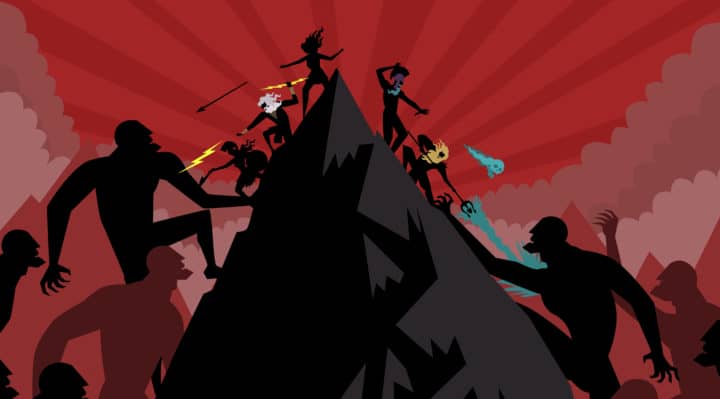 The Titans are one of the most mysterious yet formidable figures in Greek mythology. According to the Greek myths and legends, this ancient family of gods ruled the world before the Olympians dethroned them and came into power.. They were unusually powerful, yet their chaotic activities eventually led to their overthrow. One particularly interesting Titan is Iapetus. Though he was rarely mentioned, he had a fascinating role in the stories. Here’s more information about him:
The Titans are one of the most mysterious yet formidable figures in Greek mythology. According to the Greek myths and legends, this ancient family of gods ruled the world before the Olympians dethroned them and came into power.. They were unusually powerful, yet their chaotic activities eventually led to their overthrow. One particularly interesting Titan is Iapetus. Though he was rarely mentioned, he had a fascinating role in the stories. Here’s more information about him:
Iapetus Helped Hold Up the Sky
Iapetus was a Titan who was one of the many sons of Uranus and Gaia. As a Titan, he was not the god of any specific concept like love or war. Instead, he simply ruled as a primordial deity. Alongwith his four brothers, Crios, Coeus, and Hyperion, Iapetus helped hold up the earth by bearing the western pillar of the sky. Iapetus is mostly known for his more popular sons. His children Atlas, Prometheus, Epimetheus, and Menoetius all featured prominently in other mythological tales.
Myths Involving Iapetus
Most of the stories about Iapetus revolve around his role in overthrowing Uranus. Uranus, the god of the sky, was one of the very first Greek gods to arise. However, he was cruel and tyrannical, so his five sons rebelled. Iapetus helped hold down his father Uranus while his other brother, Kronos, castrated him. Following this, he assisted Kronos with ruling until the Titans were overthrown by Zeus and the other Olympians.
After the Titans were succeeded by the Greeks, Iapetus was locked away in Tartarus with his other siblings. From them on, his influence in mythology was mainly through his children. His son Atlas led a poorly-timed rebellion against Zeus, while his son Prometheus created humans and stole fire from the gods to enlighten his creation. Due to the actions of his son, Iapetus was viewed as somewhat of an ancestor of humans. As such, he is often used in works to represent the mortality and the rash arrogance of humankind.
Iapetus’ Influence Through the Centuries
Iapetus was a smaller figure in mythology, but he still had an impressive legacy. In the Iliad, he is mentioned by Homer as “the piercer” due to his role in the war alongside his brothers. Several pieces by Hesiod, including Theogony and Works and Days, also mentioned Iapetus as part of broader genealogies on Greek gods. Acclaimed Roman poet Horace also mentioned Iapetus when discussing Prometheus’ exploits with the humans.
By the 1600s, there was a growing trend of theologians trying to link together Greek mythology and Christianity. In these philosophical traditions, Iapetus is equated with Japeth, a son of Noah who went on to become the father of European and East Asian peoples. This concept seems to have occurred due to the similarity in names, as Japeth and Iapetus do not have much else in common.
Ultimately, Iapetus was just a small part of Greek mythology, but his actions went on to have a huge influence within the mythos. As one of humanity’s ancestors, he is frequently used as a representation of our mortality, impulsiveness, and foolhardiness.
Source:

